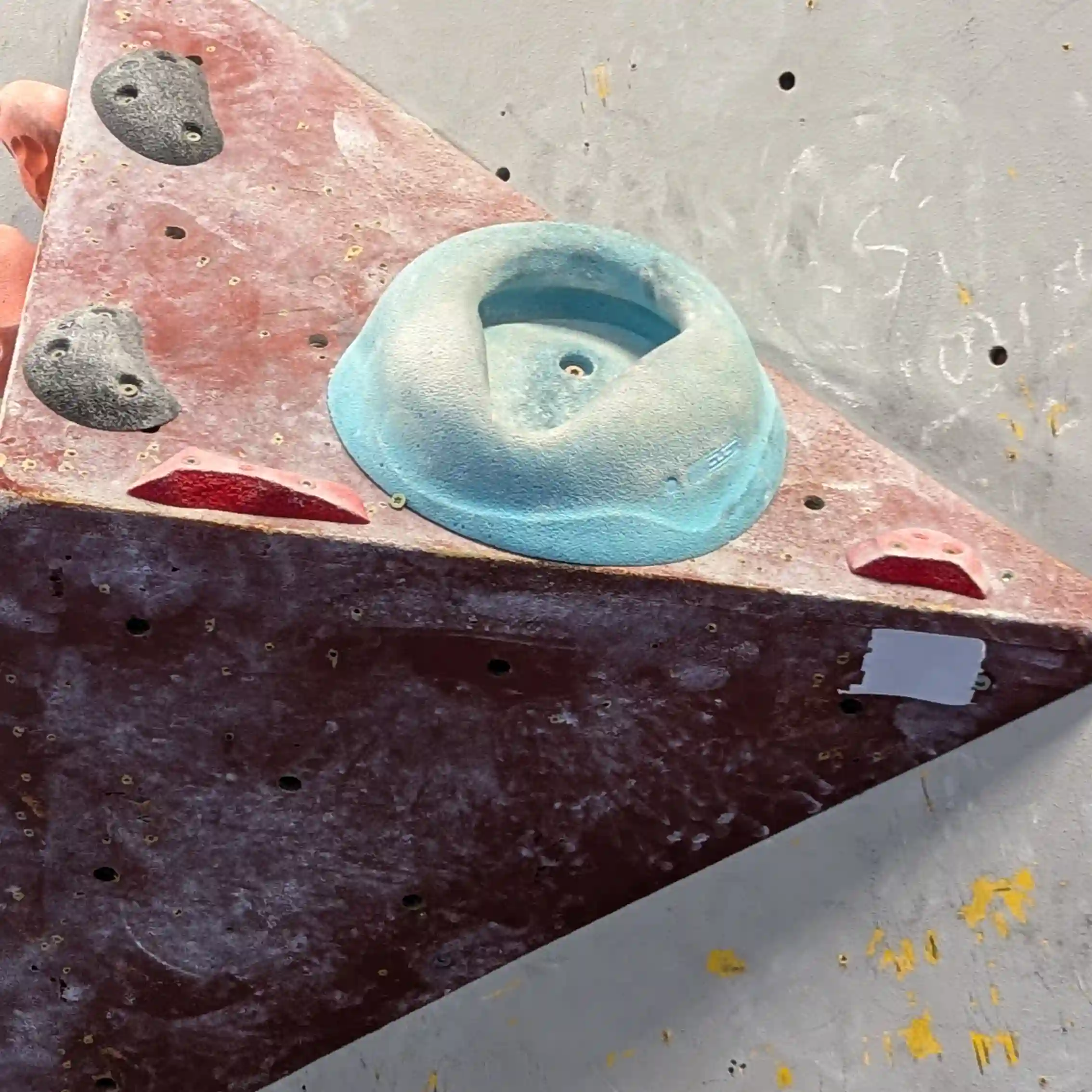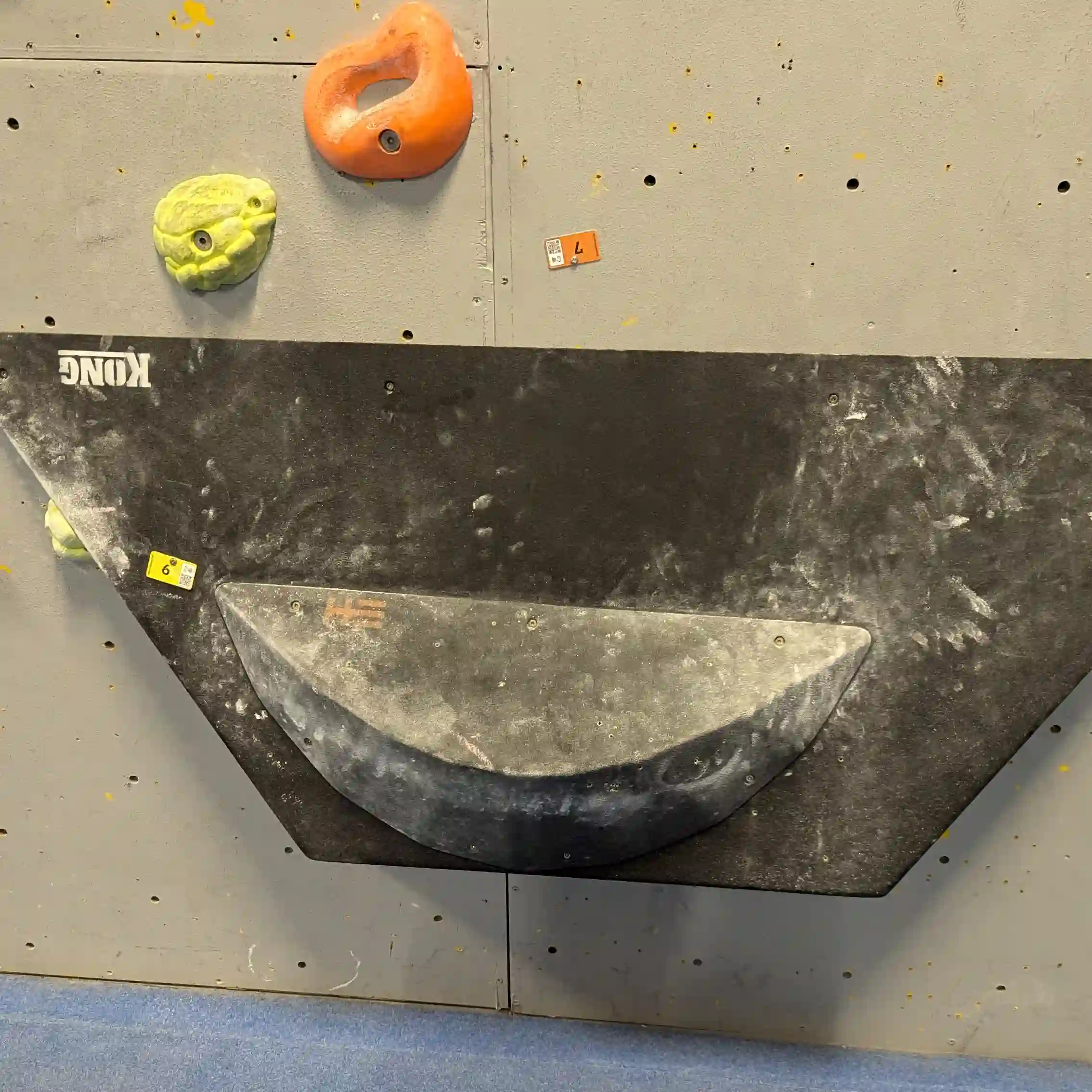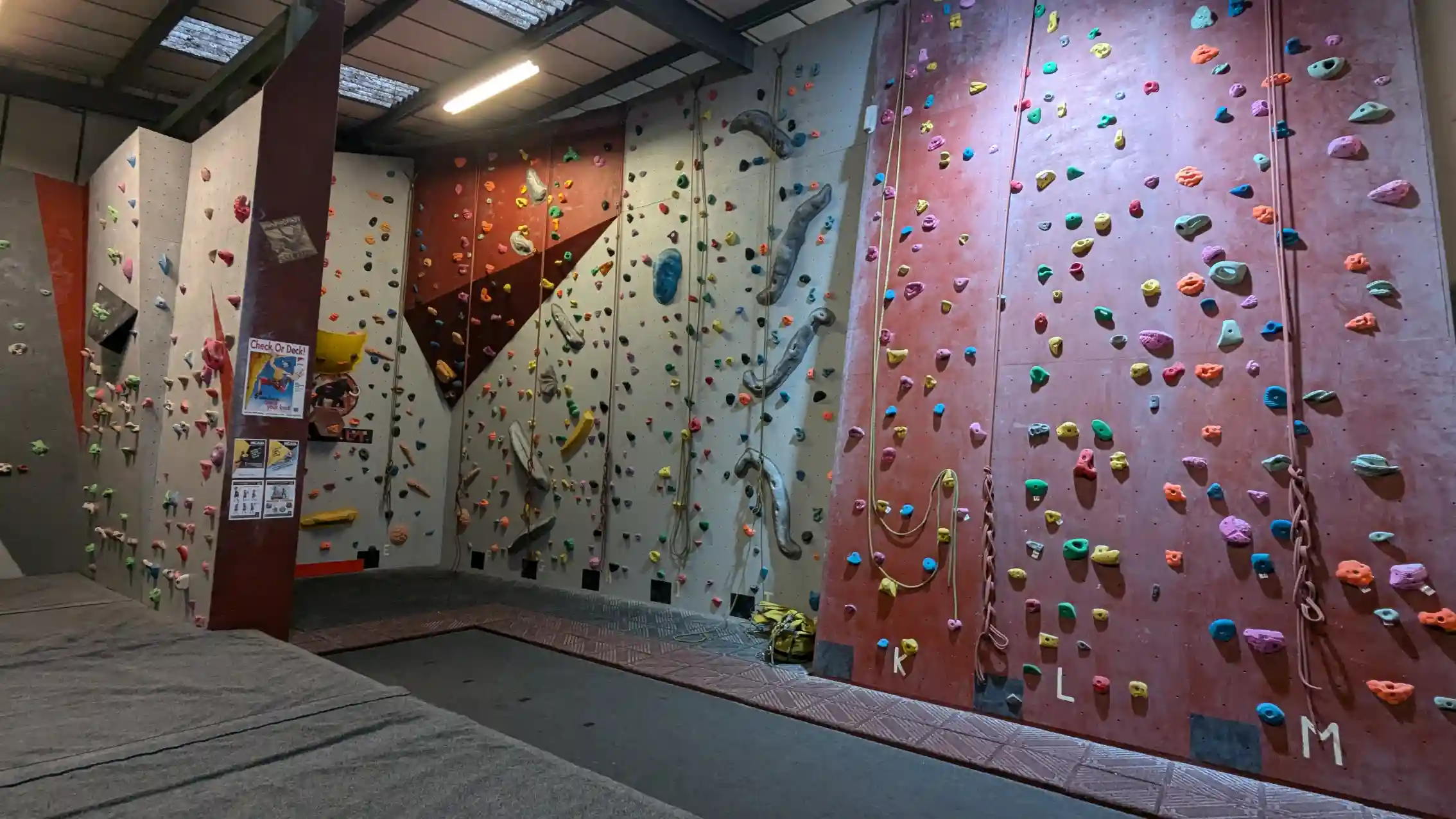Climbing Lingo
As with most sports, they all have their own sayings, words and phrases. In this guide we'll go through all the ones you'll want to know so that you can interact with other climbers at the gym and know what they are talking about!
Commonly used words and terms
You'll hear these words or terms used frequently at climbing gyms.
Crux
Definition
The hardest part of the route or climb. Can be used in bouldering or outdoor climbing.
How to use in a sentence
- That's the crux of the problem right there.
- I can't get past the crux.
- I'm struggling on the crux, can you help me please?
Beta
Definition
Information or advice on how to complete a route or different parts of the route. E.g. the crux.
There's lots of different ways to go about asking or showing someone the beta for a route. You could do the route yourself and show the other person how you handled the section or move they are stuck on. Or you can simply talk to them about it and use your hands or feet to show how you'd do a certain move. It's basically just explaining how to do something.
If you are the person who is stuck. You can either watch someone do the route and try to copy them or you can ask someone if they know how to do the route or the part you're stuck on. Climbers are generally a friendly and sociable group and they'll be more than happy to help you out if they can. Don't be afraid to ask!
Advice when wanting to help someone out - A lot of people want to work the problem out for themselves. So if you don't see them looking for help it's best to leave them be. It can sometimes be classed as rude just telling people how to do something without them asking first.
How to use in a sentence
- When asking for help - Hey, I'm struggling with this route / section, could you help me out please?
- When giving advice - Yeah it's tricky this one, what I did was ... (go on to say your explanation).
- That's the beta for it.
- Don't tell me the beta, I want to work it out for myself.
Flash
Definition
When you complete the route / climb on your first try. Well done! It's common and polite to congratulate someone when they flash a route. Simply saying "nice one", "well done" or a fist bump is enough. Although fist bumps are probably best reserved for people you know. If it's stranger, stick with words.
How to use in a sentence
- Have you tried this route before? Yeah I flashed it.
- Let's see if you can flash this route.
- This one is easy, you'll flash it no problems.
Flag / Flagging
Definition
You'll see that there's different ways to use the term flag. But it means the same thing and everyone will know what you mean. A flag or flagging is a technique where you extend your leg out to one side. It can either be to place your foot on a distant hold or the wall, or sometimes you just need to stick your leg out to help with balance. Doing this can help you from swinging away from the wall or falling off it.
You might also hear the term "Barn Dooring". Flagging your leg out can help stop that from happening.
There's two different ways to flag:
- Inside flag - Where you extend your leg out to the same side as your hand that is reaching for the hold. It can help with keeping your body close to the wall and barn dooring. E.g if you're reaching up with your right hand, your right leg extends to the same side.
- Outside flag - This is where you extend the leg to the opposite side of the hand reaching for the hold. It helps with balance if the next hold is far away. E.g next hold is for your right hand, you extend your left leg out to your left side.
How to use in a sentence
- You need to flag your right leg out to stop you from falling off.
- If you flag your leg out, you should be able to reach it.
Barn Door
Definition
A barn door or "to barn door" means when your body swing away from the wall, a bit like a barn door that just swings open. It usually happens when you don't have good foot position on the wall. A barn door can happen at any point in the climb, but it's most common at the start of a route where you need to get yourself in position.
This is where flagging can come in really handy. Take the direction that your swinging to and try extending your leg out and push against the wall with it. This should create enough force to keep your body in place. If that doesn't work, is there another position you can start in?
How to use in a sentence
- You're just going to barn door if you don't stick your foot out.
- I just barn doored out on that one.
Arête
Definition
First of all how do you pronounce Arête? "ah-ret" is the default English way to pronounce it. The word comes from the French language. The arête is like a narrow edge where two sides of the wall or rock face meet. It's basically just a right angle that you can place your hands or feet around to get some leverage or some stability.
In some occasions, you might see on a route where it states "No arête start" which means you can't use the arête to help you start a route.
How to use in a sentence
- Can you try using the arête to get yourself higher?
- What if you use your foot to wrap around the arête, does that help?
Pump / Pumped
Definition
The pump is when your hand or arms get really tired / fatigued from doing an difficult climb. It's a build up of lactic acid in your muscles. It makes it difficult to grip any holds and it's also where you might feel a bit panicked as you'll feel like you might fall off the wall at any point.
As a beginner to climbing, you're going to get pumped all the time. You'll find that you won't be able to climb for as long as others. This is completely normal, even if you are already strong from other means. If you find your arms or hands feeling pumped, just have a rest. A minimum of 5 minutes is recommended between attempts. As time goes on and you climb more, you'll be able to go for longer between breaks.
How to use in a sentence
- My arms were so pumped, I could make the next hold.
- My hands are gone, got a huge pump on.
Volume
Definition
A volume is usually a large geometric shape (pyramid shapes seem to be popular) that is bolted onto the climbing wall. You'll find them next to routes and you can absolutely use them to help you if you feel like it. Sometimes the volumes will be part of a route where a hand hold will be bolted onto it. You can also use your hands and feet on a volume. They are used to spice up a route and make them more challenging.
Here's some picutes of what a volume can look like.


How to use in a sentence
- Use the volume if you need to. That's what it's there for.
- There's a hold tucked behind the volume, use that to help you.
Top Rope
Definition
Top Rope or Top Rope Climbing is where a length of rope is already set up and anchored to the top of the route. Hence the name top rope. You might also hear it go by just "ropes".
Top Rope climbing is a little different to bouldering in that it requires two people. One is the climber who must use a harness and "tie in" to the hanging rope. The the other person is the belayer who also uses a harness and manages the rope and is there to stop the climber from falling by stopping the rope from moving in the event of a fall.
Generally speaking top rope walls are higher than bouldering walls and range from 8m to 19m and taller!
To climb top rope you'll need someone who is an experienced belayer to belay you. Most climbing gyms will have staff that can safely belay you.

How to use in a sentence
- What are we doing today, ropes or bouldering?
- Could you belay me on the top ropes please?